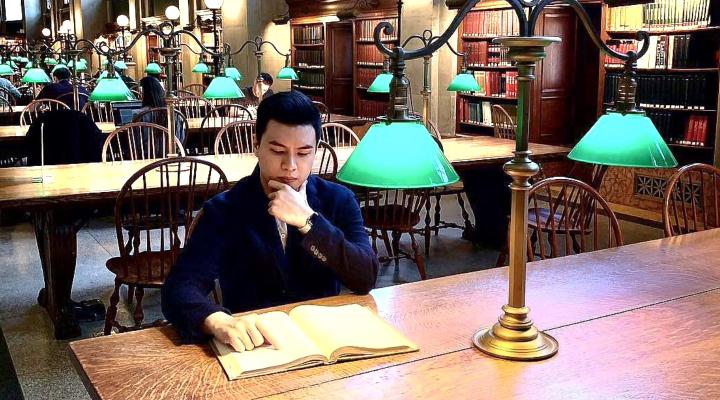In my career spanning over 25 years, I have mostly played leadership roles, managing teams from 5 to 500+ people globally. My experience was with a global IT consulting and systems integration company. Although I was uncertain about what skills to gain, I evolved by fulfilling different roles as the organisation grew. I also undertook a diverse range of training, including topics around leadership, technology and business functions.
But that was then, the era of the 1990s. Today, technology-based disruption has gotten better through rapid growth of smartphones, cloud computing, machine learning and artificial intelligence. It has enabled new business models with exponential growth potential, as evidenced in startups becoming unicorn companies within a few years. I wondered if this would disrupt the IT services industry which is mainly driven by the number of people deployed. Then Covid happened, which really brought me to the crossroads of ‘how do I keep myself relevant in this fast-paced, changing world’ between banking on my experience and, at the same time, learning something completely new.
I was very curious about how leaders in large corporations as well as startups perform in today's complex environment and uncertain times. How they develop strategies and make decisions, how they create high performing teams that are diverse with a multi-generational workforce and have different attitudes towards employers, and most importantly how they preserve and nurture an organisational culture that can potentially last for generations.
Why Oxford?
I looked at the programmes offered by Saïd Business School and spoke to industry colleagues who had first-hand experience at the University of Oxford. It was not a difficult choice to make for numerous reasons. The curriculum was based on ‘now, new and next’, the distinguished and experienced faculty, the industry captains sharing their real-world experiences, the diverse cohorts and not forgetting it also being the best in the world! I completed the Fintech Programme in 2019 and Executive Leadership Programme in 2020.
Programme experiences and learnings
Initially I was sceptical on how the online learning experience would work. The curriculum content with the combination of videos, reading, interactive experiences and cohorts made it challenging, but engaging and very satisfying.
The Fintech Programme opened up my perspectives on disruptive possibilities of technology, not just in financial services, but across the industries such as PropTech, InsurTech, EduTech and touching every aspect of human lives.
Today’s leaders deal with known and unknown scenarios in short and medium terms. Knowing the pulse of the customers, employees and ecosystem partners is crucial. Earning trust, building credibility and leading with empathy differentiates between a good and not so good leader. The Executive Leadership Programme helped me to introspect on my own leadership style and where I must make adjustments.
What followed in the short-term
The best way to retain learning is to genuinely apply it in the real world. I decided to test it out myself and follow my areas of interest. Here, I share some of my accomplishments in the past three years that followed the programmes.
- I conducted research on financial inclusion for an industry association in the UK, focusing particularly on the impact of the pandemic on financially excluded or under-served communities. I also explored if and how emerging new technologies, such as digital currencies and decentralised finance, can impact inclusion. The findings were well-received in the industry and, as a result, I was named as an ambassador of the association as well as a judge for innovation.
- I worked in the emerging area of open finance and created the first open finance index for another industry association in the UK. While developing the index, I had an opportunity to work with various stakeholders internationally including regulators, banks, governments, trade associations and academia.
- I created a startup in talent-tech addressing the career needs of professionals along their career life cycle, with a particular focus on diversity, equity and inclusion.
- I landed a strategic alliance leadership role with a big tech company.

The real deal
I stayed in touch with my cohorts, who are now my friends. This network provides psychological safety where one can express themselves openly and seek feedback.
I am particularly grateful to Pinar Ozcan, Professor of Entrepreneurship and Innovation, who guided me on developing open finance index and Anne McCarthy for sharing her valuable HR experience while I developed my startup idea.
Individuals at my stage of professional life must continue to explore and discover their potential. Go deep in your area of expertise, and go diverse into new areas to expand horizons.
Being a part of Oxford elumni, you will see the world differently and the world will see the difference in you.
'Live as if you were to die tomorrow. Learn as if you were to live forever.' - Mahatma Gandhi





